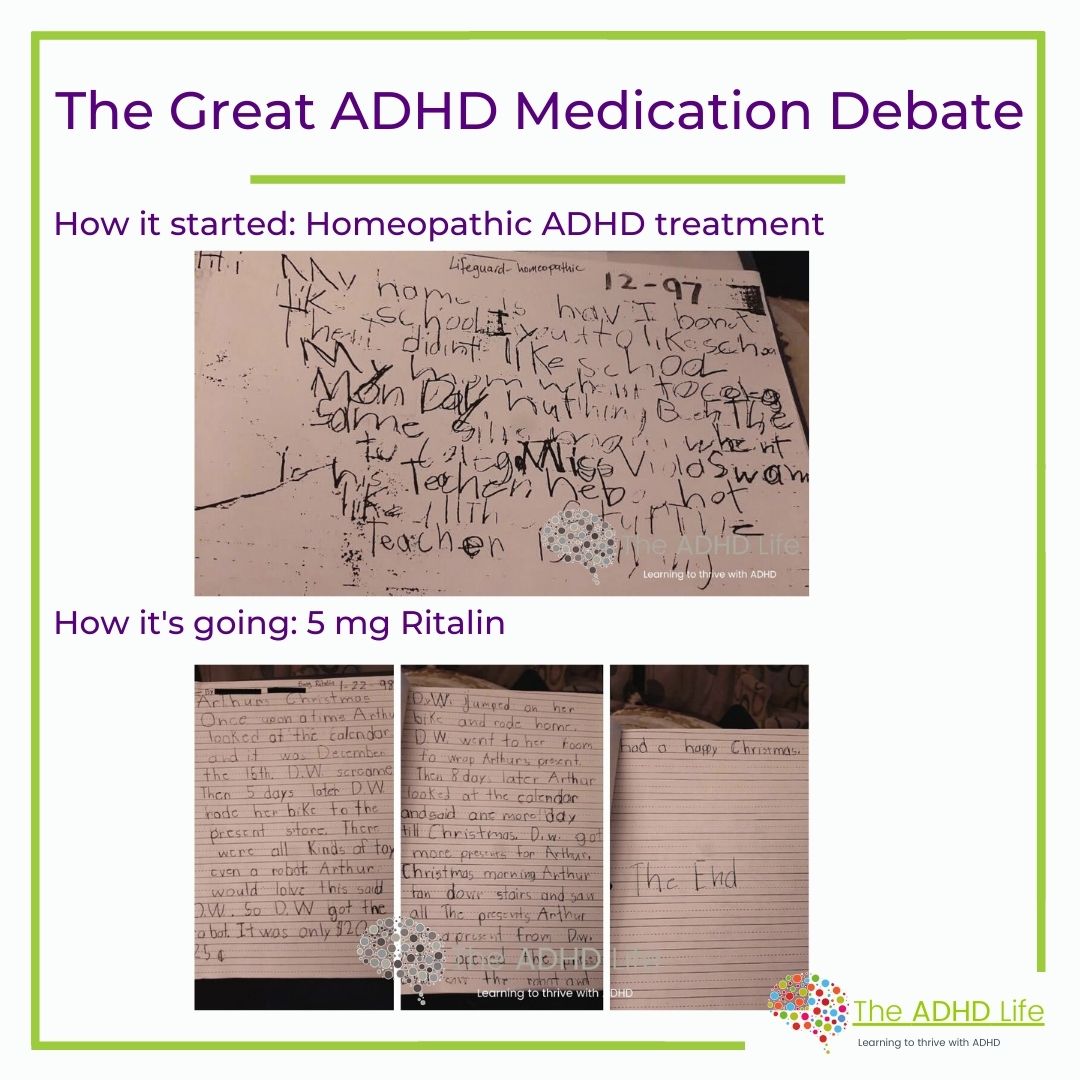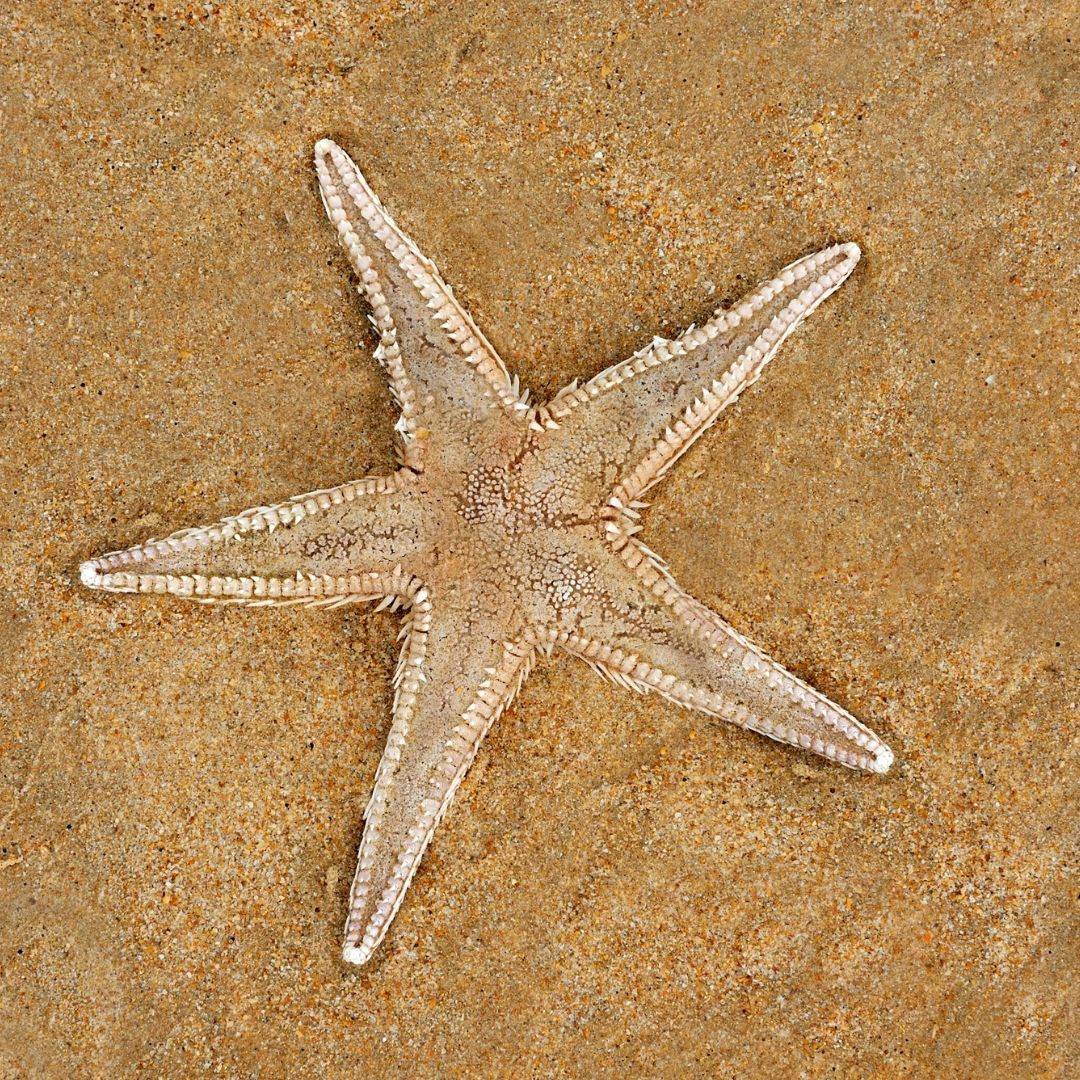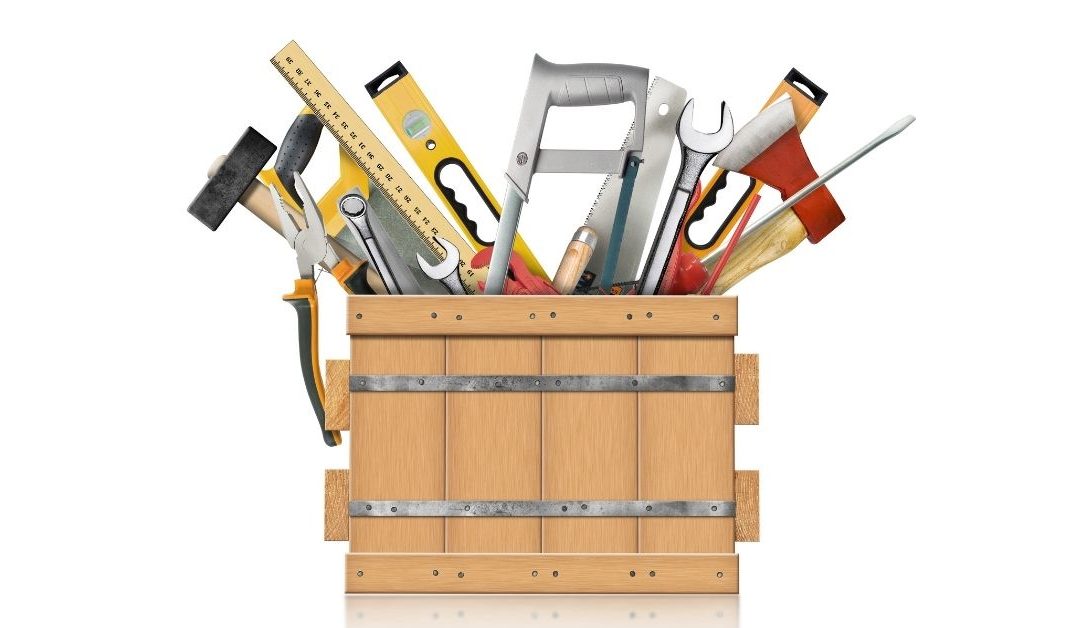One of the myths of ADHD medication is that it’s a “cure-all” for ADHD management. The pervasive nature of this myth is only exacerbated by doctors who prescribe medication without discussing how to take it more effectively, what other tools are available and what may hinder the medication from working optimally.1

Want to know more about why there is such debate about ADHD medications? Check out The Great ADHD Medication Debate.
I’ve yet to meet a person with ADHD yet who simply pops a pill in the morning and then functions like a neurotypical person until their meds wear off. In addition to medication, I have a series of ADHD.Life Hacks that I utilize to help me function like a (mostly) responsible adult. I consider all my other adhd life hacks like the tools in a toolbox that I can use to manage my life with ADHD. The toolbox isn’t very effective if it sits there shut and locked, but if I have the key to open it, then I can access the tools I need for the job. Medication is that key. These tools vary from day to day and from project to project (like most tools).2 Here are my most used tools:
- Therapy: This may seem like a weird place to start when it comes to the argument for medication. But Cognitive Behavioral Therapy (CBT) in particular has been shown to be very effective for people with ADHD. I have found it to be lifesaving, but I can’t even access the tools I’ve learned in therapy if I’m not medicated.
After a lifetime of mistakes, mishaps, and missed deadlines, is it any wonder that adults with attention deficit hyperactivity disorder (ADHD or ADD) suffer dangerously low self-esteem and perpetually negative thoughts? Cognitive behavioral therapy (CBT) is a short-term, goal-oriented form of psychotherapy that aims to change these negative patterns of thinking and change the way a patient feels about her self, her abilities, and her future. Consider it brain training for ADHD. -ADDitude Magazine
- Schedule: As someone on Twitter put it recently, “Shoot for a baseline routine with the option for flexibility when you need it.” This “semi-flexible routine” lets you get stuff done, yet acknowledges randomness in your life. An example of this is my gentle morning routine. Another way I do this is time-blocking for my work days. These loose and flexible routines give a structure that is also flexible to your life and brain.I will cover more loose schedules in a future post. Promise. 🙂
- Systems for Success: This idea is from the book Atomic Habits by James Clear. He talks about creating systems for success to create the life you’re reaching for, rather than rigid goals that are succeed or fail and easy to give up on when you don’t reach 100% success.One of the systems that works for me is setting aside mornings to be undistracted. When I set my distraction blockers on my computer the night before, I don’t have to make the decision to turn them on in the morning. Want to spend less time playing games or mindlessly scrolling through social media on your phone? Delete the apps from your phone- or set screen time limits for them (and let someone else set the password).
- Diet: There is some research out there, and anecdotal evidence, that shows some ADHD brains focus better with less sugar and refined foods. I know that my dopamine-seeking brain LOVES a quick sugar fix. Chemicals that mimic the effect of sugar are worse for my brain than actual sugar. Your body uses protein to create the neurotransmitters in the brain- it also helps regulate blood sugar. Eating a diet high in lean proteins, complex carbs, veggies and fruits is a key tool for my ADHD management. It provides consistency. But without meds? I’m an impulse machine on hyperdrive.I’ve heard from others that intermittent fasting helps hone in focus for people with ADHD as well. It’s hard to explain why, but I could see it being an “all or nothing” sort of approach that ADHD brains seem to handle better than “moderation.”
- Exercise: Moving my body is another key component in my ADHD life management. The less I move, the less I want to move. But my brain needs it. When I get stuck on an idea, emotion, or anything else in my life, the key seems to be either a snack high in protein, a nap or a walk.There is research that shows that exercises that use “cross-body movement” cause your brain to “cross the midline” are extremely good for ADHD brains. Think walking while moving your arms in opposite motion from your legs, yoga, swimming.
- Meditation/Mindfulness: I KNOW! But hear me out. Making a concerted effort to slow down and listen to my brain actually seems to help! I find traditional meditation to be incredibly difficult for me.3 But walking meditations, guided meditations and yoga are good ways for me to practice internal peace and regulate my thoughts, emotions and their correlating behaviors. I can’t seem to make myself even attempt meditation without medication.I really like the approach of Dan Harris of the book, podcast and app 10% Happier. Meditation doesn’t have to be a strict practice that is only “good” if you can sit silently for an hour a day. Instead, try closing your eyes and regulating your breathing for a minute, and just that minute will improve your day (and eventually, your life.) I’ve set a goal on my Apple watch to stop and breathe when it tells me to three times a day.
- Power naps: Sometimes my brain just gets completely overwhelmed, even with medication. I will frequently eat lunch, take my afternoon meds and then lay down for a 20 minute power nap. In my house this is shorthanded to “I just need 20 minutes.” When I find myself spinning internally the best thing to do is a reset. I like to think of it as turning myself off and back on again.

- Ground yourself: I’ve been working on having smaller increments of “resets” in the day. If my morning didn’t go as planning I get a redo at noon rather than just giving up for the day. If I need a reset and don’t have time for a nap I’ve found laying on the ground in “starfish” pose for just five minutes can really help. Pro tip: Try closing your eyes and slowing down your breathing while laying on the ground. It really helps! I know it’s not just me either, when it comes to emotional regulation there is something about laying on the ground that really helps!
How do you manage your ADHD? What tools do you use? Join us in The ADHD Life Facebook community to share your ADHD Life hacks and learn from our community. We’ll see you there!


